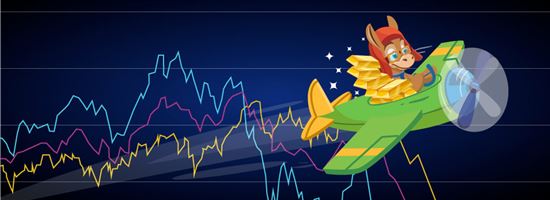Is Gold a Good Investment?
Gold has always been valuable throughout history. But is it still a good investment today? Discover the benefits and risks of investing in gold here.
 |
Gold has long been considered a symbol of wealth across different cultures worldwide. And although it's no longer used to back currencies, gold still strongly influences today's financial world.
In fact, many consider it a great investment, especially during times of extreme economic instability.
But is that still the case?
Read on to learn more about gold's viability as an investment.
6 Reasons to Invest in Gold
Gold is considered one of, if not the most valuable metal on earth. That's why many still think it should be part of an investor's portfolio.
Here are the top 6 reasons it's still a good idea to invest in gold:
- Wealth Preservation
Gold typically retains or even increases its value over time. So it can help you maintain your purchasing power or have more of it in the future. The same can't really be said for regular/paper currencies.For example, what would've cost just $100 in 1972 would cost $700+ in 2022 due to inflation.
In contrast, gold's average value was around $38 per ounce in 1972 and has increased to $1,000+ per ounce in 2022.
How much money do you want to invest in gold? - Hedge Against Inflation (and Deflation)
Gold is less susceptible to extreme economic conditions because its value isn't determined by any specific currency. It's also universally accepted as a valuable commodity across different countries.Unlike with regular currencies, you also can't control its production to manage its demand and supply. So it retains its value much longer than any other asset like stocks or bonds.
That's why, when a currency's value (e.g., the U.S. dollar) declines because of inflation, you can still rely on gold to preserve your purchasing power.
And since it retains its value much longer, it can also protect against deflation.
- Crisis Commodity
Gold is widely considered a "safe-haven asset" that investors turn to when anticipating major market downturns or changes.Since gold is considered valuable, regardless of currency, it's a good way for investors to minimize their losses.
Its value also tends to increase during economic uncertainties, outperforming most other commodities. In fact, even central banks have gold reserves as safeguards against financial instability.
Did You Know?
The U.S. has the highest amount of gold reserves worldwide at 8k+ metric tons as of 2022. - Diversify Investment Portfolio
Adding gold to your investment portfolio can also be a good way of diversifying it. Not putting all your eggs in one basket will allow you to spread the risks and offset potential losses from other investments.Gold is a good addition because it generally has a low correlation with other asset classes like stocks, bonds, and real estate.
This, coupled with its relatively stable value and constant high demand, lower the chances of you experiencing just losses. This is especially true during extremely volatile financial periods.
Is investing in gold a good investment?
Experts recommend allocating 5%-15% of your portfolio to gold. It has a good store of value, is highly liquid, and can diversify your portfolio. But whether it's a good investment depends on your financial goals. - High Liquidity
Having a bit of gold in your portfolio can be a good idea, especially if you urgently need cash. Gold is a highly liquid asset that you can quickly sell when needed. In fact, it was considered the second-most liquid asset in 2021, just behind cash and cash equivalents.There's also a constant demand for gold, so it can be easier to find interested buyers for it compared to assets with lower demand.
- Increased Demand vs. Supply Constraint
Investing in gold can be a great idea because it's not just a valuable commodity — it's also a rare resource.In fact, gold is so valuable because it has such a limited supply that it can't keep up with the increasing demand. It's hard to find and is only available in small amounts.
And even if we have more gold today than before, it's not enough to keep up with the demand. Especially since new uses for gold are being discovered every day.
The process of getting more gold is also grueling, time-consuming, and expensive. You generally have to go through a lot of rock and soil just to get a small amount.
It's also becoming more challenging to mine the below-ground gold supply because of concerns like its environmental impact, potentially unethical working conditions, and more.
The production of more gold from mining has declined steadily since 2000.
Risks of Investing in Gold
 |
While allocating part of your investment portfolio to gold is a good idea, it's not without risks. Here are some of them:
- Usually relies on fear-based decision-making
Investors turn to gold when anticipating losses due to unstable financial times (like high inflation or deflation). But this type of decision-making doesn't work well in every situation.Once the economy stabilizes, its prices might drop or slow down. This applies the most to gold mutual funds because they're backed by real-time gold prices.
- Doesn't generate additional income
Gold can preserve your wealth, but it won't really increase it. Unlike other investment vehicles, gold doesn't generate additional income because you just hold onto it until you need to sell it.What percentage of your investment portfolio is allocated to non-income generating assets like gold? - Difficult to store
Storage can be a major issue if you're investing in physical gold. Generally, you can store your gold at home, in a bank safety deposit box, or with a third-party storage company.Storing it at home is the cheapest option but also the riskiest. You need safe and enough security measures to ensure it won't be stolen.
Keeping it at the bank or with a third-party company can be better if you're worried about losing your investment to theft. But these options are usually more expensive, especially long-term.
Gold IRAs can be even more expensive because you need to store the gold in an IRS-approved facility, which charges annual storage fees.
- Not as high growth as stocks
Gold may retain its value longer during economic crises, but it still has a slower long-term appreciation than other asset classes, like stocks.In fact, the latter has generally outperformed gold in terms of price increases over the years. For example, gold prices only increased by 420% from 1992 to 2022, while stock prices increased by 932% during the same period.
Even more recently, gold prices only increased by 1% in the last 10 years compared to the 162% increase in stock prices.
So putting too much of your money in gold can be unwise if you want higher long-term returns from your investment.
- Volatility Risk
The price of gold can be highly volatile. Just like stocks and bonds, gold prices may fluctuate significantly. The price of gold goes up and down due to many contributing factors, such as inflation, supply and demand, interest rates, and gold production.
Yes, you can. Investing in gold has its risks, like with any investment. Some types, like gold futures and stocks, carry more risks than others. Make sure you're well informed about the possible risks before trying it.
Short-Term vs. Long-Term Investment
Gold is generally a low-risk investment, which can act as a financial safety net during volatile economic conditions.
But it's not an income-generating asset, so you don't really gain much unless its value appreciates.
So, is it better as a short-term or long-term investment? Let's find out.
Short-Term
As a short-term investment, gold can offer high yields. It also performs better during shorter periods, especially during unstable financial times.
Gold ETFs, futures, and mutual funds are the best options for this because they yield the most benefits from short-term price movements.
Gold futures, in particular, can be great because you can use leverage to maximize your investment. But again, this is incredibly risky because you can experience massive losses if the trade doesn't go in the direction you anticipated.
Gold, as a short-term investment, is better for advanced traders with a deeper understanding of the market and can focus on maximizing their yields.
Long-Term
Physical gold investments, like gold IRAs and gold bullions, are the best options for the long term. They can deliver solid returns over the years, especially during economic crises.
Investing in gold long-term can also safeguard against financial ruin since it retains its value longer than any other asset class.
But gold doesn't generate additional income. Your piece of gold today will be the same piece you have 5, 10, or even 20 years from now.
Aside from that, stocks and bonds have also typically outperformed gold in terms of price increases over the years.
But overall, gold can be a good long-term investment if you're looking to protect wealth and hedge against inflation.
Yes, you can. One way you can do so is by using price fluctuations to your advantage, especially during economic uncertainties. Investors typically buy more gold during this time, driving up the price.
You can also use more leverage to maximize your gains with gold futures. But this is highly risky since it can result in massive losses if your prediction is wrong.
Ways to Invest in Gold
 |
Gold investments come in different shapes and forms; it doesn't have to be just physical gold. If you want to maximize yours, make sure you choose the right type of investment.
Here are the most common ways you can invest in gold:
Gold IRA
Unlike regular IRAs, gold IRAs are self-directed retirement accounts that allow you to invest your savings in physical gold and other precious metals.
Gold IRAs offer the same tax advantages as traditional IRAs. They also have the same contribution limits and withdrawal requirements. Of course, the same penalties also apply if you withdraw your investment before you're supposed to.[1][2]
You'll need to open a special gold IRA account because regular brokers don't handle this type of investment. They will help you buy IRS-approved gold coins and store them in an IRS-approved depository.
A gold IRA can be an excellent long-term investment when you're ready to shift to more stable assets. But it has a few disadvantages.
One, an IRA is not liquid. So you can't sell your gold as quickly when you need immediate cash since you could get penalized if you liquidate early.
Plus, gold IRAs have higher fees. The storage and annual account fees can drive up the costs, especially long-term.
Gold Bullion
Gold bullions are the actual metals, usually in the form of bars and coins. It's what usually comes to mind when people talk about investing in gold.
This is the most accessible way to invest in gold because you can just buy them from a dealer, a broker, or a bank. And you'll own the actual metal. But, like with gold IRAs, storage and liquidity are significant concerns.
While you can lower costs by storing them at home, you'll still have to adopt stricter security measures to prevent them from being stolen.
They're also harder to liquidate because selling physical gold bars on the open market takes time.
The best way depends on what you're looking for and hoping to achieve. Investing in physical gold (e.g., gold bullion, gold IRAs) can be the fastest way to gain exposure. But storage costs and liquidity can be problems.
Gold stocks, ETFs, and mutual funds can be great low-cost options. But they are riskier since market fluctuations can impact your investment's value.
Gold Stocks
These focus on stocks in gold mining companies but can also be stocks in gold streaming and royalty companies. Among all these, gold mining company stocks have the most potential.
Unlike gold IRAs and gold bullions, investing in gold stocks doesn't mean you get to own the actual metal. This is a good idea if you want to invest in gold without worrying about how to store physical coins and bars.
Gold stocks can also potentially have higher returns than physical gold since they won't be limited to the current market prices. Gold mining companies can expand their production by acquiring new mines, expanding existing ones, developing new ones, etc.
This can add more value to your investment. You can also just buy a small amount at a time because many investing apps let you buy fractional shares. And you can sell your shares easily anytime you want.
But it's more volatile than physical gold. The fluctuating market prices will impact your investment's value.
Gold Mutual Funds and ETFs
Gold mutual funds and ETFs are another way to invest in gold without buying the actual gold assets. These allow you to invest in funds that hold different assets backed by gold. The underlying asset is what dictates its value. But they typically track and follow gold's spot price.
You can also trade gold ETFs like regular stocks. They offer high liquidity to investors because you can easily trade your investment on the stock exchanges.
Again, these are more volatile. But their appreciation potential is also higher. They're also more susceptible to other issues unrelated to gold, like environmental and political issues.
Investing in gold ETFs and mutual funds is typically the easiest way for beginners to invest in gold. They have minimal requirements and relatively lower costs than other forms of gold investments.
Gold Futures
Investing in gold futures involves entering an exchange-traded contract where the buyer agrees to buy a specific amount of gold from the seller later on for a predetermined price.
Investors do this as a way to hedge against future gold purchases/sales price risks. One of its advantages is that you can use a larger amount of leverage to maximize the results.
So you can invest a small amount but gain an immense amount, especially if gold prices move in the direction you anticipated. But this can backfire if it doesn't.
Among all the ways to invest in gold, gold futures are considered the riskiest. It's speculative rather than assured.
The Future of Gold
Like with any investment, there's no certainty when it comes to gold's future. Multiple factors influence its prices. And depending on how each one performs, gold prices can only go up or down.
The only question is by how much.
Unfortunately, there's no definite answer to that since financial markets can be highly volatile, and changes can happen at a moment's notice.
So predicting gold's exact future is tricky, especially when talking about its long-term yields.
But gold has remained resilient to most external factors all these years, so there's still room for value appreciation in the future.
Other commodities, like silver and crypto, have started challenging its status in recent years. But gold's long history proves they're unlikely to overtake its place at the top.
Bottom Line
Gold has remained valuable throughout the years, with its price typically increasing during economic uncertainty. Whether it's a good investment or not is another matter.
Having a small allocation in your portfolio can be a good idea. But its viability as an investment is ultimately up to you and your financial goals.
History proves that gold's status as a valuable commodity won't go away anytime soon. Still, it's best to do your research before investing your money in gold.
References
- ^ Internal Revenue Service. Publication 590-A Contributions to Individual Retirement Arrangements (IRAs), Retrieved 1/22/23
- ^ Internal Revenue Service. IRA FAQs - Distributions (Withdrawals), Retrieved 1/22/23
Write to Alyssa Supetran at feedback@creditdonkey.com. Follow us on Twitter and Facebook for our latest posts.
|
|
| ||||||
|
|
|







